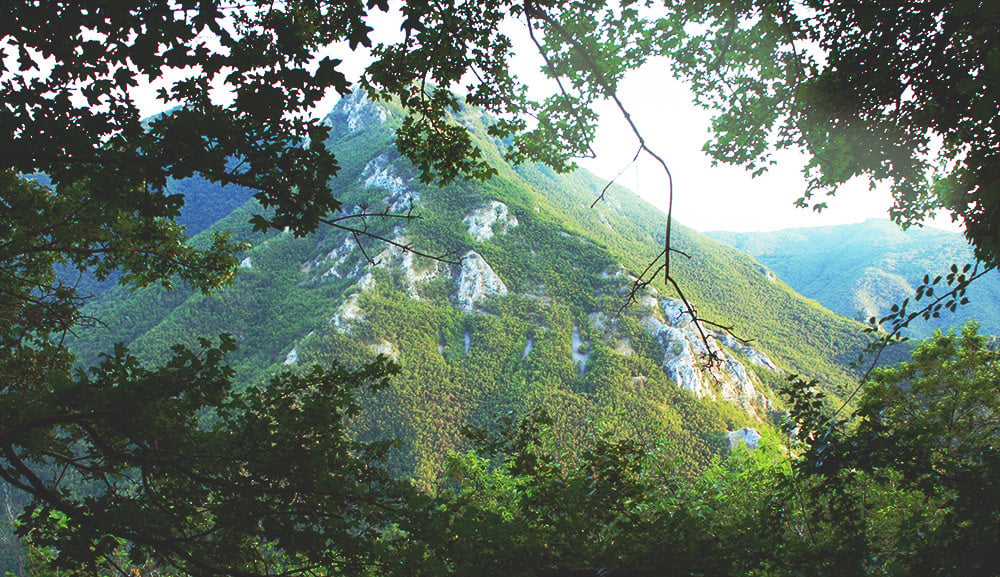I’m a Northern California girl, near the Santa Cruz area to be exact. Growing up, I was surrounded by redwood trees, tons of foliage, and the beautiful Monterey Peninsula. Suffice it to say, the move to Orange County was a bit of a shock.
Orange County is not exactly known for their beautiful landscapes; they’re known for shopping and many other things, but certainly not the type of natural beauty that I had grown up knowing. When I lived there, I worked as a cosmetologist. My clients would consistently ask me about what I missed back home. And I would consistently answer (besides the obvious, such as friends and family) “I miss the redwoods and the easy access to nature. We just don’t have anything quite like it here.”
Now don’t get me wrong, there is more nature in the surrounding areas. But most of the areas consisted of driving for a couple hours in order to get there. I knew something was missing, as though a piece of me was missing. And it turns out that I was partially right.
There have been numerous studies linking a connection to nature with mental health and physical well-being. And these studies have repeatedly provided evidence that there is a deep rooted connection between humans and nature. Although the essence of the studies are not always the same, the results are piling up with similar conclusions.

Mental Health Benefits
There is an association between experiencing nature and increased mental health well-being:
- A more positive affect
- Increase in happiness and subjective well-being
- Increase in positive social interactions and engagement
- Increase in prosocial behavior
- Increase in a sense of meaning and purpose in life
- Improved management of essential life tasks
- Decreases in mental distress
Cognitive Health Benefits
Besides these mental health positive associations with nature, there is also a link to nature improving cognitive health:
- Improved memory and attention
- Improved impulse inhibition
- Improved performance for children in school
- Greater imagination and creativity
Beyond the mental health and the cognitive impacts that nature provides, nature experience has also been attributed with improved sleep and the reduction of stress. Sleep issues and stress are major risk factors for mental illness, most notably, depression. There is also growing evidence that nature experience is associated with less incidence of other disorders; these include anxiety disorders, attention deficit and hyperactivity disorder and depression.
Physical Health Benefits
Interestingly, another study found that hospital patients who had a window-view of nature post-operatively healed more quickly than those without it. The same study also noted that patients with a view of trees also had positive effects. They required fewer strong painkillers, received less negative evaluative comments from nurses, and had reduced post-surgical complications. This is all indicative that interacting with nature can be as involved as going on a hike or simply being able to admire and appreciate it from a window.
It is no secret that our country is facing a drug crisis, prescription or otherwise. And another study reported that an outdoor therapeutic camping trip reduced the probability of patient relapse for recovering substance abusers.
In addition to the mental health, cognitive health, and physical health effects that interacting with nature provides, other studies are also finding a link that the positive effect also benefits nature within itself.
Co-benefits between Nature and Health
A different study found that those who make weekly nature visits or feel a connection to nature, are also more likely to behave in more environmentally healthy ways. These ways include promoting an inclination towards recycling and the conservation of nature itself.
This appears to be a double-whammy of the positive benefits of being involved with nature. The current mental health and physical health crisis can be subjugated by being involved with nature. But it also works both ways. Immersing yourself in nature can also help people feel more predisposed to be aware of and concerned with climate change and the current devastation of wildlife loss that our society is facing.
This raises the idea that the current urban-living lifestyle may not be as suitable for people as we would like to think. Researchers are suggesting that our society needs to make more of an effort to provide nature within large cities. More funds need to be allocated to parks and other ways of interacting with nature in order to improve public health while at the same time, inspiring people to have more respect for it by feeling connected to it.
I drove home for my move from Southern California to Northern California. As I neared my destination, I could almost feel a weight lifted off of me. A piece that I had been missing for too long. There I was, finally at home, surrounded by the redwoods and the beauty of my environment. I took a breath of fresh air and allowed myself to finally relax.

References
Bratman, Gregory N., et al. “Nature and Mental Health: An Ecosystem Service Perspective.” Science Advances, American Association for the Advancement of Science, 1 July 2019, advances.sciencemag.org/content/5/7/eaax0903?utm_source=miragenews&utm_medium=miragenews&utm_campaign=news.
Keniger, et al. “What Are the Benefits of Interacting with Nature?” MDPI, Multidisciplinary Digital Publishing Institute, 6 Mar. 2013, www.mdpi.com/1660-4601/10/3/913/htm.
PlymUni. “Reconnecting with Nature Key for the Health of People and the Planet.” EurekAlert!, University of Plymoth, 13 Feb. 2020, www.eurekalert.org/pub_releases/2020-02/uop-rwn021220.php.
Photo Credits: Gina Gaus















